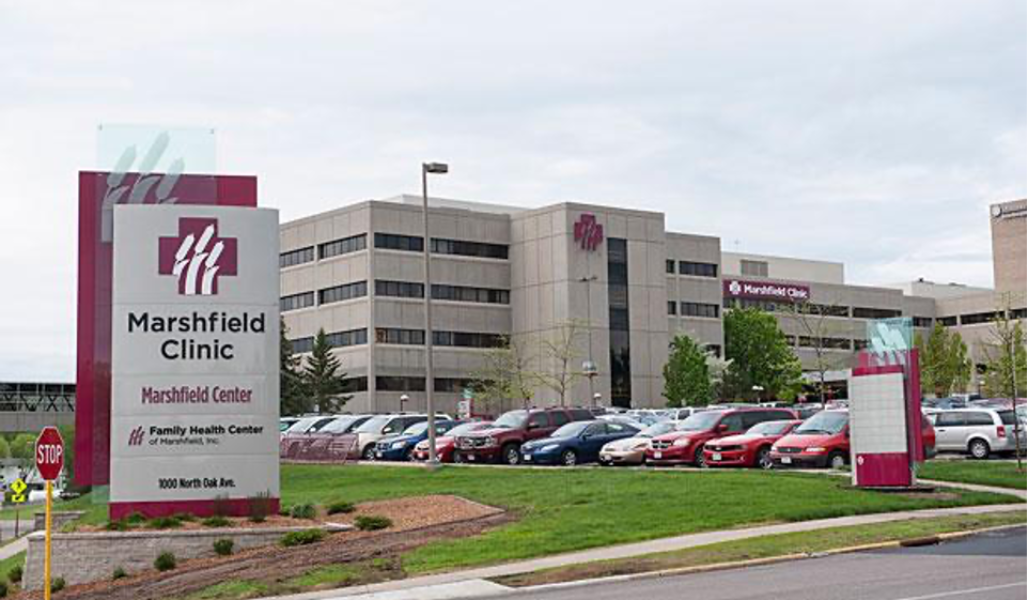
After a Traumatic Personal Journey, Martin Adams Finds Virtual Counseling a Lifeline
It all started on October 19, 2019. When toddler Ashton Adams suffered a fall that led his mother to take him to the hospital, the family had no idea what would transpire over the next six months.
“My son was a normal, healthy baby,” said Martin Adams, Ashton’s father. “He was just about to start walking and talking. One day, when I was sleeping after working a night shift, my daughter came and woke me up. She told me that Mom had taken Ashton to the hospital because he fell.
“During that ER visit, the doctors discovered a mass in his brain,” Adams recalled. He was flown to Marshfield Children’s Hospital for further testing. A few days after his admission “he had brain surgery.” Ashton was diagnosed with Atypical Teratoid Rhabdoid Tumor (ATRT), an extremely rare form of brain and spinal cord cancer.
“My son was in the hospital for 127 days straight,” Adams said. “My wife and I were there for the first six weeks, and then we had to start alternating so that we could return to work. My mother-in-law was there when we needed to be with our other children or our schedules overlapped. We stayed at the Ronald McDonald House of Marshfield, and thankfully, we had extended family watching our two young daughters at home when we couldn’t be home.”
After multiple rounds of chemotherapy, a bone marrow collection, an evaluation for experimental treatment, and other trials, Ashton died on April 18, 2020. “He was only 18 months old,” Adams said. “He died in my arms.”

Photo description: Marshfield Clinic Health System
Marshfield Team Becomes Like Family
Although the Adams family had some difficult and traumatic experiences with some healthcare providers and hospitals, the team at Marshfield Children’s became like a second family.
“Marshfield was top-notch,” Adams said. “They did everything they could to help save my son. They became part of our family.”
One individual who helped the Adams family, and Martin in particular, was Dr. Rachel Young, a psychologist with Marshfield Clinic Health Systems (MCHS) in Wisconsin. MCHS is a member of the Program Advisory Council (PAC) of the Great Plains Telehealth Resource & Assistance Center (gpTRAC).
Ashton’s death coincided with the rise of the COVID-19 pandemic, which prompted a relaxation of regulations related to insurance reimbursements and privacy issues for delivering telehealth services.
Telehealth Makes Help Easier to Accept
“People who have never experienced the trauma of losing a child don’t understand that after something like that, it’s extremely difficult just to get out of bed in the morning,” Adams said. “I also think males have a hard time going to counseling and asking for help in general. If I had to call Dr. Young to make an appointment, drive 90 minutes to get to her office and then do an in-person session, I never would have done it.”
Many see the logistical advantages of telehealth, such as saving both patients and providers travel time and delivering better access to healthcare to rural populations, However, when it comes to mental health services in crisis situations, telehealth services can be a lifesaver.
“Dr. Young was there with me at the hospital,” Adams said. “She met my son; she was with us during the whole thing. She knows everything about me. I’m so thankful to be able to talk with her once a week over WebEx. I couldn’t get through this trauma without her. It’s saved my life.”
Adams has personally seen so many advantages to telehealth services that he hopes regulatory and reimbursement rules will continue to allow people to receive similar services after the global pandemic passes.
“I can’t see going back to the way it was,” Adams said. “Telehealth makes it so much easier to accept help. It takes all the difficult steps away: you don’t have to make the appointment, travel, or sit in a waiting room worried that everyone is looking at you and thinking you’re crazy. You’re in the comfort and privacy of your own home. You can just click on a link, and your doctor is right there.”
Adams believes that greater access to telehealth services, particularly in crisis situations, is one positive thing that has come out of the COVID-19 pandemic.
“It is a blessing to have the opportunity to connect with Dr. Young through WebEx regularly,” Adams concluded. “I thank her all the time. The availability of telehealth helped me drop my pride and accept help. When it comes to mental health, telehealth can save people’s lives.”
